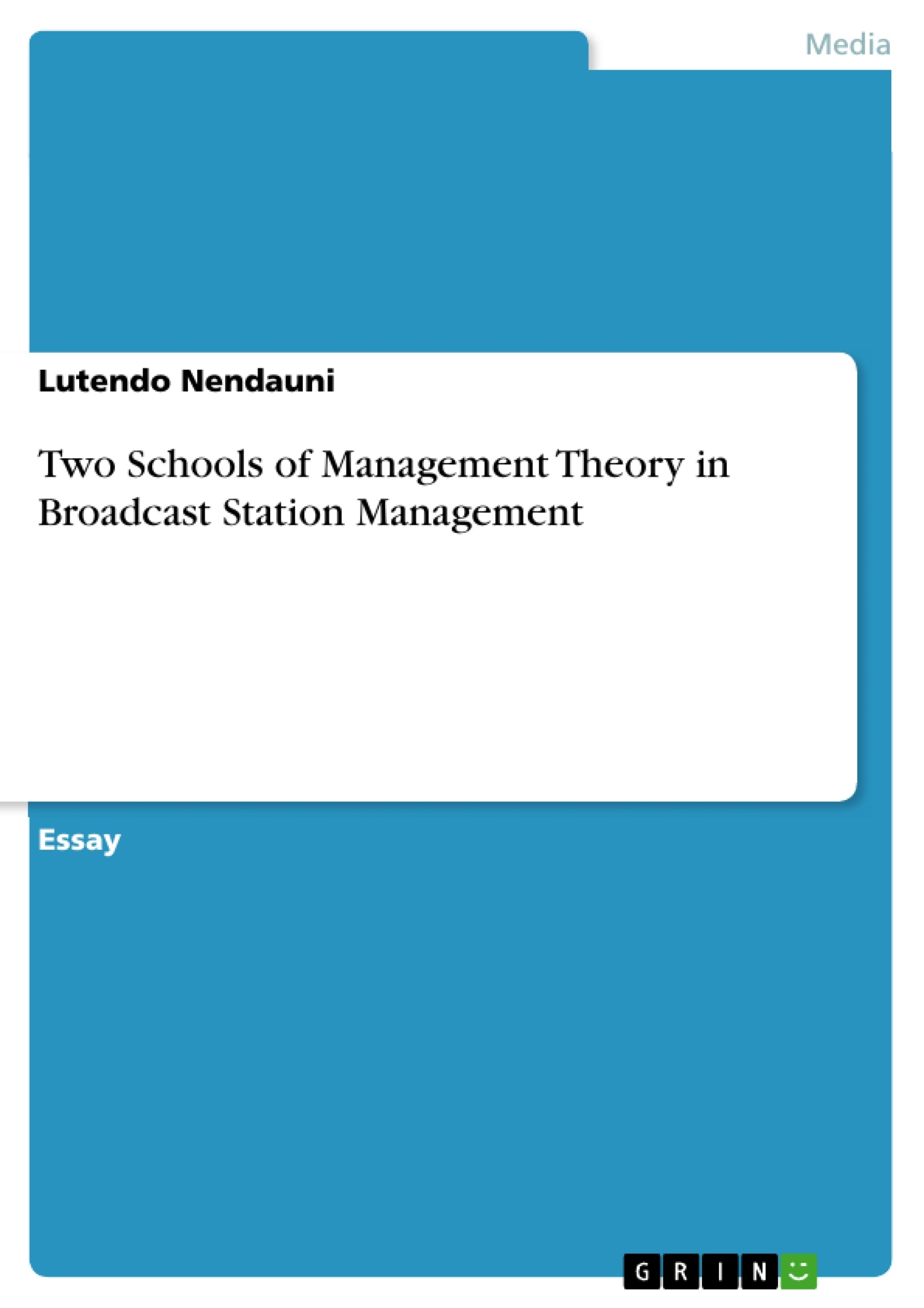This paper defines and explores the various theoretical approaches that were used in the major schools of management thoughts, paying special attention to the classical school of thought as well as the modern school of thought. This paper then explores how these approaches can be used to manage broadcast media.
Management science is seen as one of the applied sciences that would serve managers in a similar way as the physical sciences serve engineers.This essay seeks to critically discuss the various theoretical approaches pertinent to broadcast station management by gauging major schools of thought that dominated early management science.
These two major early theoretical schools in management are the classical school and the behavioural school. This essay looks at both models, the existing literature on them and their similarities and differences.
Inhaltsverzeichnis (Table of Contents)
- Theoretical approaches applicable to broadcast station management when evaluating major schools of thoughts that dominated early management science.
- The Classical School of Management
- Scientific Management Approach
- Administrative Management Approach
- Bureaucratic Management Approach
- The Human Relations School of Management
- Hawthorne Experiments
- Maslow's Hierarchy of Needs
- Herzberg's Hygiene and Motivator Factors
- McGregor's Theory X and Theory Y
Zielsetzung und Themenschwerpunkte (Objectives and Key Themes)
This essay aims to critically examine various theoretical approaches relevant to broadcast station management by analyzing the major schools of thought prevalent in early management science.
- The Classical School of Management, including its various approaches like scientific, administrative, and bureaucratic management.
- The Human Relations School of Management, encompassing perspectives from Hawthorne experiments, Maslow’s Hierarchy of Needs, Herzberg's Hygiene and Motivator Factors, and McGregor’s Theory X and Theory Y.
- The role of employee motivation and satisfaction in achieving organizational goals.
- The evolution of management thinking from a focus on efficiency and control to a more humanistic approach that considers employee needs.
- The limitations of both classical and human relations schools in considering effectiveness and goal attainment.
Zusammenfassung der Kapitel (Chapter Summaries)
- This chapter provides an introduction to the topic of theoretical approaches in broadcast station management and outlines the essay's scope. It defines key terms such as "theory," "broadcast station," "media management," and "management science," establishing the theoretical framework for the discussion.
- This chapter explores the classical school of management, focusing on its core principles and key approaches. It examines scientific management, administrative management, and bureaucratic management, highlighting their respective contributions to organizational efficiency and productivity. The chapter also analyzes the similarities and differences between these approaches and their relevance to broadcast station management.
- This chapter delves into the human relations school of management, recognizing its shift from a purely efficiency-based perspective to a more humanistic approach. It investigates the Hawthorne experiments, Maslow's Hierarchy of Needs, Herzberg's Hygiene and Motivator Factors, and McGregor's Theory X and Theory Y, illustrating how these theories emphasized the importance of employee needs and motivation. The chapter also discusses the impact of these theories on contemporary management practices.
Schlüsselwörter (Keywords)
The main keywords and focus topics of this text include broadcast station management, management science, classical school of management, human relations school of management, scientific management, administrative management, bureaucratic management, Hawthorne experiments, Maslow's hierarchy of needs, Herzberg's hygiene and motivator factors, McGregor's Theory X and Theory Y, employee motivation, employee satisfaction, organizational goals, and effectiveness.
- Citation du texte
- Lutendo Nendauni (Auteur), 2014, Two Schools of Management Theory in Broadcast Station Management, Munich, GRIN Verlag, https://www.grin.com/document/347103



